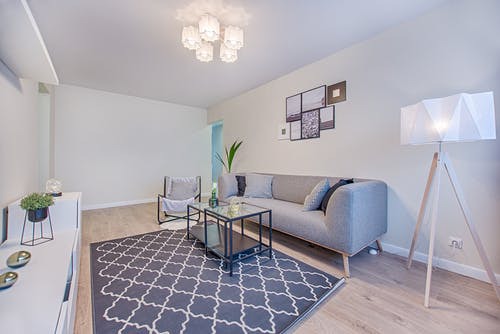
Taking on a major home remodel can feel like a big challenge. It involves planning, coordination, and even a bit of patience. But with the right preparation, you can minimize stress and ensure your remodel goes as smoothly as possible. Let’s break down how to get ready for this exciting but complex journey.
1. Setting Your Goals
Before going into any home renovation project, it’s important to have clear goals. What’s the motivation behind your remodel? Are you aiming to increase the value of your home, improve functionality, or update outdated spaces? Understanding why you’re pursuing this remodel will help you set realistic expectations and prioritize your tasks.
2. Creating a Budget
Once you’ve established your goals, it’s time to set a budget. A well-thought-out budget will ensure you don’t overspend and can handle unexpected costs that might arise. Here are some things to consider:
-
Research average costs for the remodel you’re planning.
-
Get multiple quotes from contractors.
-
Factor in costs for materials, labor, permits, and any additional fees.
-
Set aside a contingency fund for unexpected expenses.
3. Hiring Professional Contractors
Working with professional contractors can make all the difference. They bring expertise and experience to your project, ensuring high-quality results. Finding the right local builder is crucial. Here are some tips to help you choose:
-
Check for licenses and insurance.
-
Read reviews and ask for references.
-
Review previous work or portfolios.
-
Discuss your project in detail and ensure they understand your vision.
4. Declutter and Organize
Before any work begins, you’ll need to declutter and organize your home. Remove any items that might get in the way of contractors, and make sure your living space is ready for the planned changes. This will not only protect your belongings but also speed up the work.
5. Setting Up Temporary Spaces
Living through a remodel means certain parts of your home might be unusable for a while. To minimize disruptions, set up temporary spaces for daily activities. Consider these tips:
-
Temporary Kitchen Setup: Equip a temporary kitchen with basic appliances like a microwave, coffee maker, toaster, and mini-fridge. This allows you to prepare simple meals without relying entirely on takeout. Additionally, set up shelving or portable storage units for non-perishable food items, utensils, and kitchen supplies. Choose a location that is easily accessible but away from the main construction area to avoid dust and debris.
-
Space for Family Meals and Activities: Designate a dining space away from the construction zone. This could be a part of the living room, a patio, or another unused room. Use portable tables and chairs if needed. Alongside the dining area, create a zone where family members can relax, play games, or work on hobbies. Ensure this space is comfortable and has the necessary amenities, such as good lighting and seating.
-
Comfortable Sleeping Arrangements: If bedrooms are affected, set up temporary sleeping arrangements in other parts of the house. Consider using air mattresses, rollaway beds, or sofa beds to accommodate everyone. Ensure these temporary sleeping spaces offer some privacy and comfort by using room dividers, curtains, or screens to create a sense of separation and personal space.
6. Staying Flexible
Sometimes, things don’t go exactly as planned. Stay flexible and be prepared to make adjustments. Remodeling projects can encounter unexpected issues, and being adaptable can help you manage these challenges more effectively.
7. Choosing the Right Materials
Choosing the right materials is a key aspect of any remodel. Focus on quality, durability, and aesthetics that match your style. Consider a Chicago home renovation project for insight into trends and material options. This can help you make informed decisions and ensure your remodel stays on track.
8. Evaluating Space Needs
When planning a home addition, start by evaluating your space needs. Determine what type of addition would best serve your family’s needs. Common additions include extra bedrooms, a larger kitchen, or a home office. Carefully assess the space and how it will integrate with your existing home layout.
9. Understanding Zoning Laws and Permits
Zoning laws and permits can significantly impact your home addition project. Before starting any construction, it’s essential to understand the regulations in your area. Research local zoning laws and consult with professionals to ensure you’re compliant. If you’re considering options like Augustyn Builders Home Additions, you’ll need to be aware of these requirements to avoid potential legal issues.
10. Maintaining Communication with Your Contractor
Consistent communication with your contractor is vital. Set up regular check-ins to discuss progress, address concerns, and decide about any needed adjustments. This ensures everyone is on the same page and can minimize miscommunications.
11. Structural Considerations
Major renovations often involve structural changes. It’s important to consult with professionals for structural assessments and necessary modifications. This step ensures the safety and stability of your remodel, especially if you’re removing load-bearing walls or making significant changes to your home’s layout.
12. Inspecting the Completed Work
Once the remodeling work is done, conduct a thorough inspection. Check for quality and ensure everything meets your expectations and the agreed-upon specifications. Don’t be afraid to ask for corrections if something isn’t right. It’s crucial to address any issues before making the final payment.
13. Cleaning and Setting Up
After the final inspection, it’s time to clean up and set up your newly renovated space. Remove any dust and debris left from the construction and start moving your belongings back into their places. Take your time to arrange furniture and decorations so you can fully enjoy your refreshed home.
Final Thoughts
Preparing your home for a major remodel doesn’t have to be overwhelming. By planning, hiring the right professionals, and staying organized, you can ensure a smooth and successful renovation process. Embrace the changes and look forward to enjoying your revamped living space.























































